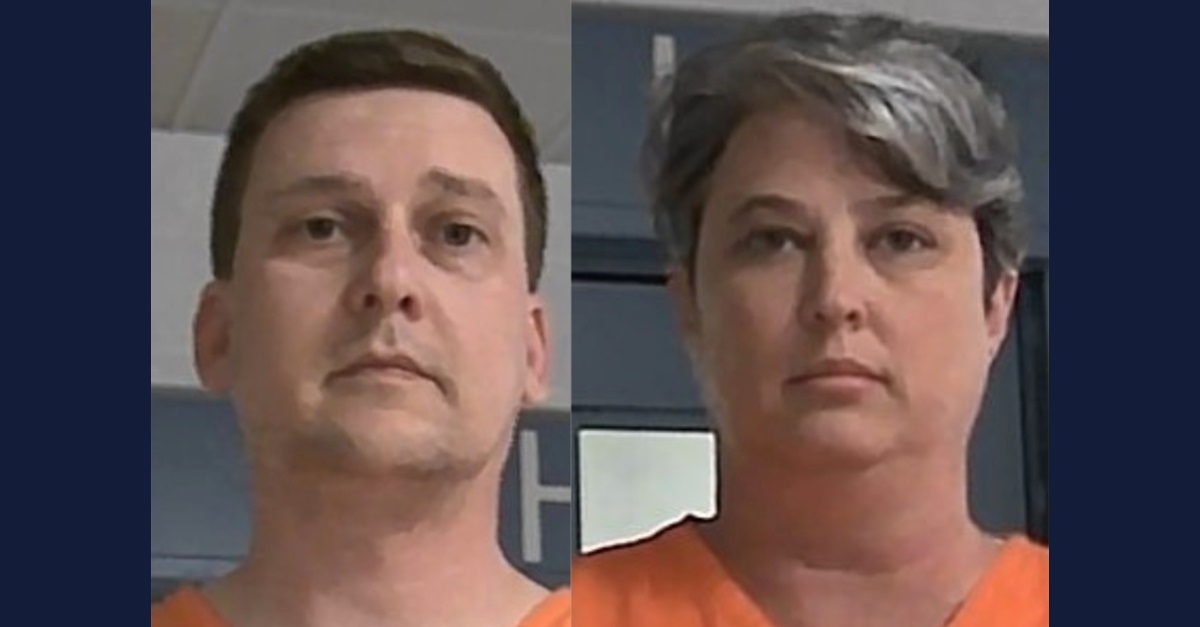
Jonathan Toebbe and Diana Toebbe.
It is back to square one for a couple who pleaded guilty to attempting to sell nuclear submarine secrets. A judge rejected their deal with prosecutors on Tuesday, according to reports. Navy civilian engineer Jonathan Toebbe, 43, agreed to be sentenced to somewhere between 12 years, 7 months and 17 years, six months in prison. His teacher wife Diana Toebbe, 46, agreed to be stuck behind bars for 3 years.
U.S. District Judge Gina M. Groh of the Northern District of West Virginia found the agreed-upon punishments insufficient.
“It’s not in the best interest of this community or, in fact, this country to accept these plea agreements,” she said in court on Tuesday, according to The Washington Post. “I don’t find any justifiable reason for accepting either one of these plea agreements.”
The couple reached legally rare “C” plea deals with federal prosecutors. Such pleas are named after Rule 11(c)(1)(C) of the Federal Rules of Criminal Procedure. They are sometimes referred to as “sentence bargain agreements.” Most federal defendants plead guilty under another rule that affords judges considerably more discretion at sentencing. So-called “C” pleas do not, and here, Judge Groh was reportedly unhappy that the deal bound her hands to a sentence she disliked. Her only option, then, was to scuttle the agreement in its entirety.
The defendants admitted they tried to sell nuclear secrets to someone they believed to be a foreign operative. In court documents, Jonathan admitted working for the Department of the Navy as a nuclear engineer. He had top secret clearance through the Department of Defense and Q clearance through the Department of Energy. However, he sent a package in April 2020 to a foreign nation, which officials did not identify. By Feb. 10, 2021, he was communicating with a person he believed to be an agent for the foreign nation.
They spent months hashing out pay and exchange details for restricted data and eventually executed several dead drops in Pennsylvania, Virginia, and West Virginia, according to the plea agreement. The material included an SD card wrapped in plastic and hidden between two slices of bread on half of a peanut butter sandwich.
“I hope your experts are very happy with the sample provided,” stated a message on the SD card. “I want our relationship to be very successful for us both.”
Diana admittedly served as a lookout on three of those instances.
“During the charged period, Mr. Toebbe’s wife, Diana Toebbe, knowingly and voluntarily joined the conspiracy to communicate Restricted Data to another person with the intent to secure an advantage to a foreign nation and committed multiple overt acts in furtherance of the conspiracy, including acting as a lookout while Mr. Toebbe serviced three dead drops, as described below,” the now-neutered plea agreement stated.
The so-called foreign agent was actually an undercover FBI agent.
Groh called the suggested plea deals were “strikingly deficient.” Her rejection means the defendants are legally permitted to walk back the pleas and force the government to trial.
The judge cited a victim impact statement from Vice Adm. William J. Houston, who serves as commander of U.S. submarine forces. Houston called the secrets that the Toebbes tried to sell “some of the most secure and sensitive information about our nuclear powered fleet,” according to the Post.
Jonathan’s attorney Nicholas J. Compton reportedly maintained that the bargained sentencing range for his client was “not a slap on the wrist.”
“It’s significant punishment,” he said.
However, court papers say the maximum sentence could have been life in prison.
Diana’s attorney Barry P. Peck pointed at Jonathan as the lead defendant and primary wrongdoer. In other words, Peck maintained that the shorter, three-year sentence for Diana was justified.
“She’s not why we’re here today,” he said. “We’re here because her husband had an ill-conceived idea to make money, and she agreed to go along with it.”
Diana Toebbe already will no longer be able to work as a teacher and would spend a long time away from her children, according to an argument reported by the New York Times.
“She will be someone who will live the rest of her life with this scarlet letter on her,” Beck reportedly said.
Even assistant U.S. attorney Jarod J. Douglas pushed to save the plea deals, saying Jonathan Toebbe cooperated extensively. Also, the information the engineer gave up was only confidential, not secret or top secret, the prosecutor said.
“His post-plea cooperation was substantial, very substantial,” Douglas said, according to the Times. “It was critical to a larger assessment of that defendants conduct which we may have never known. The Navy would never have known what his conduct was, and what its scope was, without his cooperation.”
Groh reportedly suggested that the defendants could strike a new plea deal within the usual federal sentencing guidelines. That would mean prison time of at least 15 years for both Jonathan and Diana.
After rejecting the “C” plea, the judge scheduled a trial to begin in January 2023. Both sides could still reach a new plea deal, though prosecutors signaled they are getting ready to take the matter before a jury.
U.S. Attorney William Ihlenfeld of the Northern District of West Virginia said his office is preparing and will “be ready” for trial.
“I respect the decision by the Court to reject the plea agreements,” he said, according to the Post.
Correction: Jonathan Toebbe faced up to 17 years and six months in prison, not 17 years and five months.
[Mugshots via West Virginia Regional Jail & Correctional Facility Authority]
Have a tip we should know? [email protected]